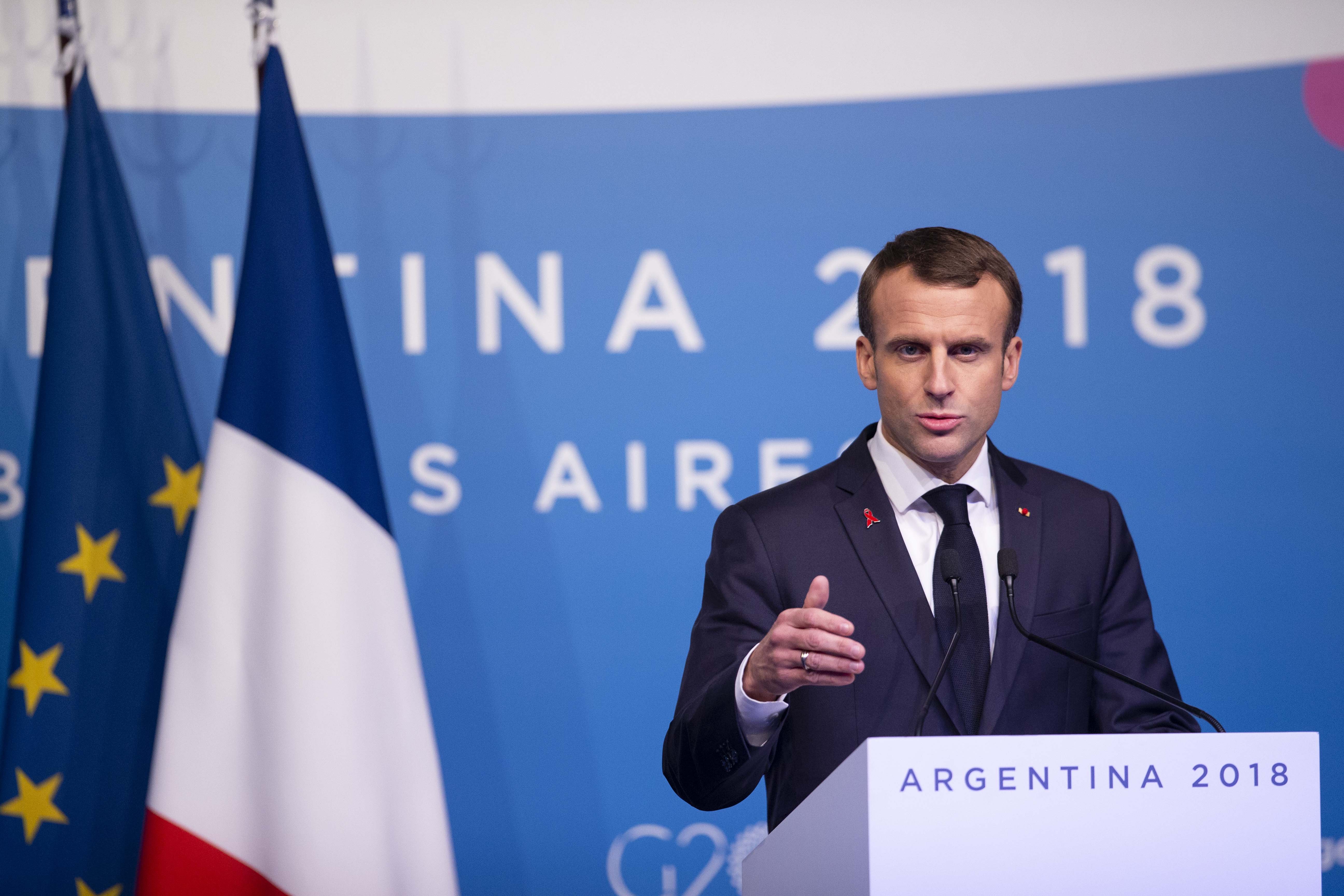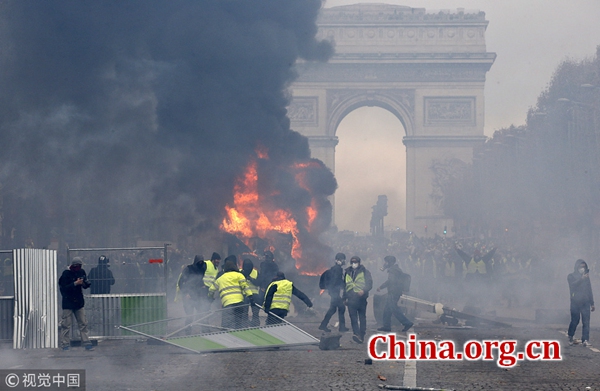Macron's hard choices concerning 'yellow vests'
- By George N. Tzogopoulos
 0 Comment(s)
0 Comment(s) Print
Print E-mail China.org.cn, December 8, 2018
E-mail China.org.cn, December 8, 2018

The President of France Emmanuel Macron is currently facing a serious social crisis. The so-called "yellow vest" protests have been ongoing for almost one month during which peaceful demonstrations have been accompanied with some riots that have caused damage in several French cities.
An initial reaction against new taxes on diesel fuel has evolved into a general condemnation of the country's president. As it often happens in similar cases, extremist elements are creeping into the protests, are engaged in violent activities and are causing chaos. The international image of France has been associated with the "yellow vests" for some weeks while several questions about repercussions are being raised.
Macron managed to win the presidential election approximately one and a half years ago, benefiting from the political circumstances of that time. As a fresh face in politics and presenting himself as a centrist, he emerged as the only alternative for the majority of the French voters who wanted their country to follow the so-called mainstream political path.
Conservative candidate Fran?ois Fillon was almost out of the race after the disclosure of a scandal involving his wife, while the Social Democratic party had been damaged by the rather disappointing presidency of Fran?ois Holland. Thus the real choice for French people was between Macron and the head of the National Front party Marine Le Pen. The final result would not have been different despite the high number of votes for Le Pen.
Macron came to power by presenting an ambitious package of reforms to make France more competitive. Generally speaking, his current economic policy is in line with his pre-election program. He has not deceived his compatriots – as opposed to several European politicians who easily forget their promises after winning an election. But the ongoing "yellow vest" protests show how difficult it is for a politician to clash with long-established interests and change outdated attitudes. The difficulty becomes even harder in a country like France where trade unions and syndicates remain powerful.
Macron's big mistake seems to be that he provocatively favors the wealthy and big companies at the expense of ordinary citizens and employees. As a former banker, the French president believes that this is the best way to generate growth in the medium and long-term for more job positions to be created. Even if his economic theory is not necessarily contested, an average French citizen cannot accept Macron offering tax exemptions for big companies with the same ease of imposing new taxes on diesel fuel for ordinary citizens.
At the same time, many are annoyed by his arrogance as far as his style is concerned. The French president gives the impression that he belongs to the "elite" and serves it while ignoring the problems a normal family faces in their everyday life. These problems cannot be always realized and understood from the Elysée Palace but require a personal analysis, if not experience.

The road ahead will be difficult for Macron. If he abandons or significantly delays the implementation of his reform agenda, he will show weakness in statecraft. And should he continue to push for its realization, he will risk further suffering politically as well as risk seeing France paralyzed by the "yellow vests."
Obviously, a large part of the French society is responsible for not being prepared to accept changes and lacking patience but the French president has to remember the principle of equality when deciding new measures. A society cannot be administered as if it were a private company or a bank.
For the time being, the "yellow vests" have not received a concrete political patronage in spite of their efficient coordination, principally through social media. Both Marine Le Pen and far-left politician Jean-Luc Mélenchon have attempted to benefit from the chaos, with limited success according to some initial opinion polls.
It will be interesting to observe if any new political force can emerge in France that will transform the "yellow vests" into political action that proposes creative policy ideas to citizens as well as offering new candidates for the next election. The political landscape in France is currently fragmented and Macron – sincere as he is – is causing further fragmentation with his economic policies.
George N. Tzogopoulos is a columnist with China.org.cn. For more information please visit:
http://www.formacion-profesional-a-distancia.com/opinion/GeorgeNTzogopoulos.htm
Opinion articles reflect the views of their authors, not necessarily those of China.org.cn.





